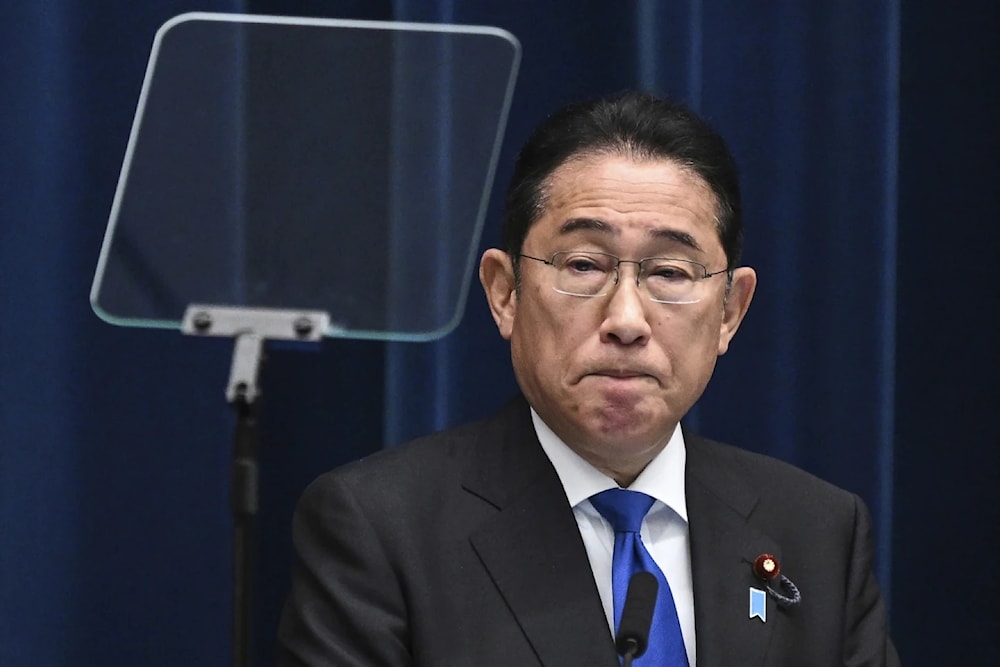Japan PM Kishida to step down amid scandals, sinking polls
Kishida, 67, who has served as prime minister since October 2021, has witnessed a steep decline in both his and his party's approval ratings due to rising prices.
-

Japanese Prime Minister Fumio Kishida speaks during a press conference at his office in Tokyo as he announced he will not run in the upcoming party leadership vote in September, Wednesday, August 14, 2024. (AP)
Japan's Prime Minister, Fumio Kishida, announced, on Wednesday, that he would not run for re-election as party leader, signaling his intention to step down.
The ruling Liberal Democratic Party, which has largely held power since 1945, is set to hold a leadership contest next month to choose his successor as prime minister.
"In this (party) presidential election, it is necessary to show the people that the LDP is changing and the party is a new LDP," Kishida told reporters in Tokyo.
"For this, transparent and open elections and free and vigorous debate are important. The most obvious first step to show that the LDP will change is for me to step aside," he stressed.
Kishida, 67, who has served as prime minister since October 2021, has witnessed a steep decline in both his and his party's approval ratings due to rising prices that have strained Japanese incomes. In November, he introduced a 17 trillion yen ($100 billion at the time) stimulus package in an effort to alleviate the impact of inflation and salvage his leadership.
However, this move did little to boost his popularity, either among voters in the world's fourth-largest economy or within his own party. In addition to inflation—an unfamiliar and unwelcome challenge for Japanese citizens—economic growth has stalled, contracting by 0.7% in the first quarter. Although there has been some recent recovery, the yen remains one of the poorest-performing currencies globally, benefiting exporters but driving up the cost of imports.
Another reason is a series of scandals including years of hiding income and expenditure from ticket sales for fundraising events.
Dive deeper
Kishida has firmly aligned with Ukraine, hosting President Volodymyr Zelensky at a G7 summit in Hiroshima and making a visit to Kiev.
During his tenure, Japan committed to doubling its defense spending to meet NATO's two percent GDP standard by 2027, marking a significant shift from the country's long-standing pacifist stance. This move was encouraged by the United States which perceives China as a threat.
In April, US President Joe Biden welcomed Kishida to the White House, where the two leaders declared a "new era" of cooperation.
Additionally, Japan and the Philippines signed a defense pact in July, allowing for the deployment of troops on each other's soil. On the climate front, Kishida pledged at COP 28 in December that Japan would not build any new coal power plants without emission-reduction measures.
However, critics argue that the necessary technologies, like "co-firing" coal with ammonia or carbon capture and storage, remain unproven on a large scale.
Read more: Japan's PM makes no mention of US in Hiroshima anniversary

 3 Min Read
3 Min Read








